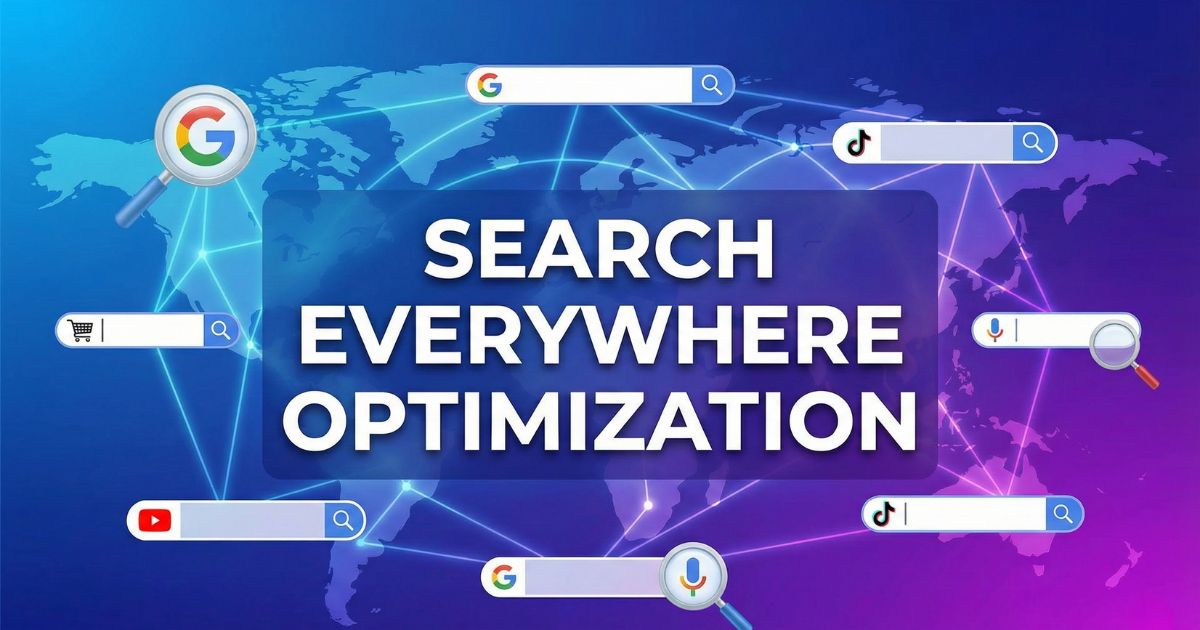Reputation management is the practice of monitoring, influencing, and maintaining an individual or organization. It involves managing online reviews, social media mentions, and search engine results to build a positive image. Brand reputation management involves shaping stakeholder perceptions and guiding public conversations around an organization and its brands. It encompasses monitoring feedback and discussions, addressing potential reputation risks, and proactively leveraging opportunities to enhance and strengthen brand reputation.
Why is reputation management important?
A reputation management guide is essential for building trust and credibility in today’s dynamic digital environment. By actively monitoring public perceptions and addressing feedback, brands can effectively shape how they are viewed by their audience. This practice goes beyond managing negative feedback; it is a strong, positive narrative that aligns with the brand’s values, actions, and goals. Reputation management ensures that a brand’s key qualities and values are consistently communicated, helping to reinforce a positive image and cultivate a loyal customer base. Moreover, it allows brands to respond promptly to any potential reputation risks, turning challenges into opportunities for improvement and transparency. A well-managed reputation strategy contributes to long-term brand success, customer trust, and competitive differentiation, making it a vital component in today’s marketplace. Reputation is about a person, organization, or brand, often reflecting the respect or admiration garnered over time through consistent actions, character, and performance. This opinion is shaped by past behaviors, achievements, and the values demonstrated. A strong reputation is a valuable asset, in how others trust, respect, and engage with a person or brand. For companies, reputation often reflects reliability, quality, and a commitment to excellence. For example, a business’s high-quality products and services may earn a global reputation for excellence, building consumer trust and loyalty. Similarly, professionals known for their skill, integrity, and dedication such as a doctor recognized for her expertise and compassionate care are highly respected in their field.
In today’s digital world, online reputation management is increasingly dynamic, shaped by online feedback, social media, and public conversations. Managing reputation proactively is essential, as positive perceptions can enhance credibility and influence, while negative impressions may impact success. A solid reputation opens doors to new opportunities, fosters stronger relationships, and helps maintain resilience in challenging times.
Why is reputation important in business?
Firms with strong positive reputations enjoy a competitive advantage in attracting top talent and customers. A solid reputation signifies reliability, integrity, and quality, making these organizations more appealing to potential employees. Skilled professionals to companies known for their ethical practices and commitment to excellence, believing will find a supportive and rewarding work environment. This influx of talent can enhance innovation, productivity, and overall performance, further solidifying the firm’s standing in the market
Moreover, companies with favorable reputations as providing value to their customers. This perception allows them to charge premium prices for their products and services. Consumers are generally willing to pay more for brands they trust, believing that higher quality justifies the added cost. This pricing power can lead to increased profit margins and financial stability. Customer loyalty is another significant benefit of a strong reputation. Satisfied customers will remain loyal to a brand, making repeat purchases and advocating for the company within their networks. This loyalty helps reduce marketing costs, as loyal customers often act as brand ambassadors, promoting the firm through word-of-mouth recommendations. A positive reputation can facilitate business growth by encouraging partnerships and collaborations. Other businesses and stakeholders are more inclined to engage with a reputable firm, leading to new opportunities and avenues for expansion. In summary, companies that cultivate and maintain a positive reputation enjoy enhanced customer loyalty and the ability to command premium pricing. This virtuous cycle of reputation, value, and loyalty ultimately contributes to sustained success and growth in a competitive marketplace.
There are 2types of reputation management
Reputation management techniques can be proactive or reactive, and both play essential roles in creating a strong strategy to enhance and safeguard a brand’s reputation. Proactive techniques focus on establishing and promoting positive brand perceptions, such as sharing success stories, engaging with audiences, and building brand credibility. Reactive techniques address reputation risks as they arise, such as responding to negative feedback or resolving customer concerns swiftly and effectively. By combining these approaches, brands can strengthen their positive image and mitigate potential issues, ensuring a well-rounded reputation management strategy that supports long-term brand trust and loyalty.
The Reputation Management Method
Reputation management is the strategic process of shaping public perception of a business, focusing on building trust, credibility, and a positive brand image. It encompasses a range of activities, from monitoring and responding to online reviews to actively influencing how the brand is portrayed across various touch points. In today’s digital era, where opinions are easily shared and accessed, reputation management has become essential for businesses seeking to maintain and enhance their standing in a competitive market.
Key online platforms where reviews, ratings, and social media conversations occur. By keeping track of these discussions, businesses can identify and address potential issues before they escalate, demonstrating their commitment to customer satisfaction and responsiveness. Timely, thoughtful responses to positive and negative feedback are critical; they show customers’ voices are heard and offer an opportunity to reinforce brand values.
Beyond reacting to feedback, effective reputation management involves proactive efforts to shape public opinion. This might include promoting success stories, sharing customer testimonials, or showcasing initiatives that reflect the brand’s commitment to quality and ethical practices. Marketing and customer experience teams play pivotal roles, as these functions directly impact how customers feel and think about the brand.
Additionally, reputation management isn’t solely reactive. It involves a forward-thinking approach, with strategies for potential reputation risks. For instance, a brand might implement training programs for employees on best practices in customer service or engage in community activities that reflect its values. Such actions build goodwill and create a foundation of trust.
Ultimately, reputation management is an ongoing process that requires consistency and a focus on long-term relationships. By actively managing reputation, businesses can foster loyalty, enhance customer relationships, and create a strong, resilient brand presence.
Reputation Management Strategies
Reputation management strategies are essential for shaping how others perceive your business in today’s digital landscape. With the advent of SEO, digital marketing, content creation, and social media, businesses have unprecedented tools to cultivate a positive online presence.
To effectively build brand awareness. Start optimizing your website and content for search engines, ensuring the brand is easily discoverable and associated with positive keywords. High-quality, engaging content that resonates with your target audience can not only enhance your brand’s visibility but also establish your authority in the industry.
Social media plays a vital role in reputation management; actively engaging with your audience can foster trust and loyalty. Regularly sharing valuable content, responding to inquiries, and addressing concerns promptly can create a community around your brand. Additionally, leveraging customer testimonials and case studies can showcase your successes and build credibility.
Monitoring your online reputation is equally important. Utilize tools to track mentions of your brand across various platforms, allowing you to address negative feedback swiftly and effectively. By implementing these strategies, you can significantly enhance your brand’s reputation, driving customer loyalty and growth.
What is a reputation management tool?
A reputation management tool is an essential software solution designed to assist businesses in monitoring, analyzing, and responding to their online presence. In today’s digital age, where information spreads rapidly, these tools play a crucial role in maintaining a positive public image. They enable businesses to keep a pulse on what is said about them across various platforms, including social media, review sites, and forums.
One of the primary functions of reputation management tools is tracking online mentions and sentiment. By aggregating data from multiple sources, these tools provide insights into public perception and help identify trends in customer feedback. This proactive approach allows businesses to spot potential issues before they escalate, enabling them to address negative comments or reviews swiftly.
Additionally, these tools often include features for analyzing customer sentiment, giving businesses a clearer understanding of how their brand is perceived. Through sentiment analysis, organizations can gauge the effectiveness of their marketing strategies and public relations efforts and make necessary adjustments to enhance their reputation.
Moreover, reputation management tools facilitate direct engagement with customers. They often include features that allow businesses to respond to reviews and comments in real time fostering a sense of connection and transparency. This engagement helps mitigate negative feedback and demonstrates a commitment to customer satisfaction.
In summary, reputation management tools are vital for businesses to cultivate a positive online presence. These tools help safeguard a brand’s reputation and promote long-term success.
What is a reputational risk?
Reputational risk refers to the potential threat to the good name or standing. This risk can significantly impact an organization’s credibility, customer trust, and success. Reputational risk can manifest in two primary ways: directly and indirectly. For instance, unethical business practices, poor customer service, or product failures can affect public perception and diminish consumer confidence. These actions can result in financial losses, decreased market share, and challenges in attracting new customers.
On the other hand, indirect reputational risk often stems from the behavior of employees or stakeholders associated with the organization. For example, if an employee engages in unethical conduct or makes controversial statements, it can reflect poorly on the entire company, even if the organization is not directly involved. Social media amplifies this risk, as negative incidents can quickly go viral and damage the brand’s reputation.
Organizations must prioritize effective communication, employee training, and a robust crisis management plan. By fostering a culture of accountability and transparency, businesses can safeguard their reputation and maintain the trust of their customers and stakeholders.
What are the benefits of reputation?
Individuals and organizations with positive reputations are far more likely to earn trust and foster business relationships. A strong reputation instills confidence among customers, making them more willing to engage and invest in a brand. This trust translates into lasting customer loyalty and enhances overall market presence.
Additionally, a good reputation acts as a catalyst for attracting valuable opportunities. Businesses recognized for their integrity and excellence are more appealing to potential partners, collaborators, and investors. Companies with established reputations for strategic alliances can lead to innovative projects and growth.
Moreover, top talent actively seeks out organizations with positive reputations, believing they will find supportive and rewarding work environments. This influx of skilled professionals enhances a company’s capabilities and drives innovation and performance. A strong reputation is a powerful asset that opens doors to trust, opportunities, and long-term success.
Reputation management is an ongoing commitment that requires consistent attention, care, and strategic action. In today’s digital world, where information spreads instantaneously to customer opinions, it can shape a brand’s future, maintaining a more positive reputation than ever. A proactive approach to reputation management responsiveness and genuine engagement with your audience is to trust.
To effectively manage your brand’s reputation, start by actively monitoring online platforms where customers share feedback, such as social media, review sites, and forums. Listening to your audience allows you to stay informed about public perception. A quick, empathetic response to customer inquiries or negative feedback can turn potential issues into opportunities to demonstrate your commitment to customer satisfaction. This responsiveness helps build a positive, caring image of your brand.
Beyond addressing concerns, reputation management consistently delivers value. Provide high-quality, and maintain transparency. Encouraging satisfied customers to leave reviews and testimonials can amplify positive perceptions and boost credibility.
Reputation management isn’t solely about damage control; it’s about actively fostering a brand image that aligns with your company’s values and resonates with your target audience. A strong reputation enhances customer loyalty, attracts new business, and creates goodwill to sustain your brand through challenging times. In a world where your reputation is one of your most valuable assets, nurturing it will pay off in substantial and lasting ways. Protect and grow, and will remain a powerful force for your brand’s ongoing success.






